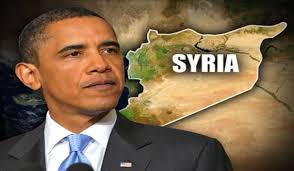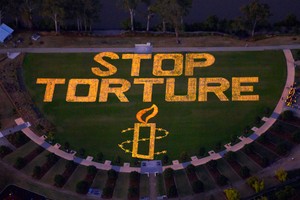The prosperous superpower of the U.S has always been a key factor in the resolutions for international conflicts. Its military intervention with NATO and the implementation of the U.N Resolution of 1973, in the 2011 Libyan crisis was viewed as effective and a work toward a true democracy free of Ghadafi’s dictatorship. Military involvements took place and arrests were made. The ‘cop’ had indeed properly executed its self-claimed duties. The U.S objective, with the support of Canada, was indeed achieved.
So here we are again. Situation: Chemical weapons and killings of thousands of civilians. Country: Syria. Proposed solution: Authorization of military strike against Syria in pursuit of “protecting civilians.” Possible Outcome: A recipe for disaster or, if lucky, success.
According to U.N estimates, the civil war in Syria has claimed over 100,000 lives of its own people in just the past two years. While many may view the crisis in Syria as an inconceivable genocide, the United States views it as a time for military intervention. Why is that the United States is taking on the role of a policeman and that others may now view it as a ‘bad cop’? Without a doubt, while there may be huge discrepancies between what steps should be taken domestically and internationally in resolving the crisis in Syria, it is unlikely that the U.S will stand back and watch the Al-Assad regime continue to kill. With the high chances of the Al-Assad regime retaliating against a U.S decision to intervene, this situation might ignite the candle or in more simple terms, contributes to a prolonged war and broader regional hostilities.
[captionpix align=”right” theme=”elegant” width=”300″ imgsrc=”http://natoassociation.ca/wp-content/uploads/2013/09/images.jpg” captiontext=”Proposed Military Strike”]
Canada’s take:
We’ve seen Canada support NATO operation in Libya two years ago. But now, will Canada be the Robin of the U.S. Batman? Will it take a substantial role on the conflicts in Syria? Will the bilateral relationship between the neighbouring countries be hindered?
Canada has urged the need for humanitarian involvement and the coming together of the international community in the efforts of securing the livelihood of the Syrian people. So far, Canada has contributed an estimated $362 million in the efforts of supporting the helpless civilians through all means ranging from humanitarian assistance to development and security. Despite these great offerings, the real question comes down to- will Canada support the US proposition to strike Syria? The answer is an unsurprising “yes”, but a conditional “yes”. Though Prime Minister Stephen Harper claims to have “no plans” for military actions against Syria, it still supports the U.S decision. Canada is one of the countries, along with France, Australia and South Korea, etc, that would endorse a military strike against the Al-Assad regime.
John Baird, Canada’s Foreign Affairs Minister, is reported in the The Globe and Mail saying, “It’s[Military strike] not something that’s been requested of us, it’s not something that has been asked. I’m not a military expert. President Obama has not shared the type of military intervention that he’s contemplating. I think most thoughtful observers would anticipate the use of cruise missiles, armed drones, neither of which Canada, the Canadian Forces, are in possession of. So at this stage, I don’t see the capacity for Canada to participate militarily. Obviously we have politically supported the Obama administration in this regard and I think this is a strong moral stand.”
So there we have it, Canada supports the Obama Administration, but it hesitates to be directly involved in military missions in Syria. Canada, along with many other countries that support the strike, may indeed be seen as the Robin to the Batman of the U.S. The U.S Secretary of State John Kerry suggests that the only way to avoid a military strike is for the Al-Assad government to surrender its chemical weapons to the international community as soon as next week. Russia proposes that Syria’s chemical weapons sites be under international control in order to avoid military strike. But what will happen now that Syria accepts Russia’s proposal? All that matters is, whether or not the Congress passes the proposal initiated by the Obama Administration.




